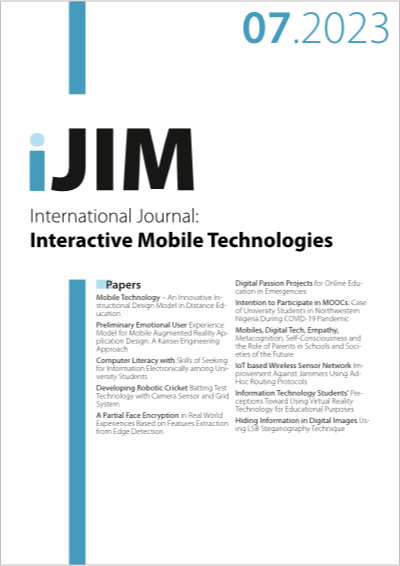Intention to Participate in MOOCs: Case of University Students in Northwestern Nigeria During COVID-19 Pandemic
DOI:
https://doi.org/10.3991/ijim.v17i07.30093Keywords:
Intention, MOOCs, University, Nigeria, COVID-19 PandemicAbstract
The Massive open online courses (MOOCs) have been introduced over the past few decades to account for the twenty-first-era education and recent COVID-19 pandemic trials driven by the spread of internet-based technology on the internet. This research seeks to give an extended model investigating the intention to use MOOCs based on students at public universities in north-western Nigeria. The planned extended model, which extends the TAM, was tested via PLS structural equation modelling using data collected from 451 students at public universities in northwestern Nigeria. The research findings indicated that the proposed extended model delivers around is 72.0% descriptive effect and the creative technology acceptance TAM model. establishes strong signal for the effects of PU, PR, PEOU, SN, and TA on intentions to practice MOOCs technology among students at Nigerian public universities context. The pragmatic outcomes present practical implications and theoretical can be used for MOOCs developers with justifying the reasons as to why the usage of MOOCs is not high within public universities in North-ern-western Nigeria. The findings indicate PU, PEOU, PR SN, and TA, considerably impact students’ intention to use MOOCs. The research has theoretically provided insight into extended TAM in Nigerian learning environments to discover the issues influencing students' intents. The findings could practically enlighten administrators, instructors, developers, and policymakers in making informed decisions.
Downloads
Published
How to Cite
Issue
Section
License
Copyright (c) 2023 Abubakar Mu'azu Ahmed, Abdullah

This work is licensed under a Creative Commons Attribution 4.0 International License.



